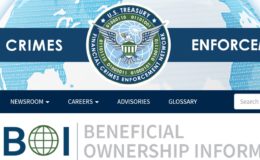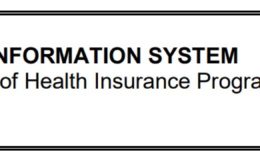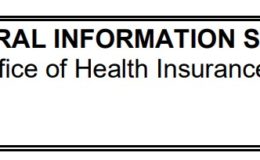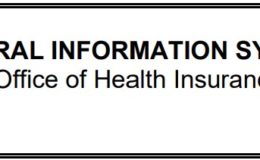Do assets received by a beneficiary of a “Grantor trust” on the death of the Grantor receive a “step up in basis”?
On January 9, 2023 IRS issued Revenue Ruling 2023-2; 2023-16 IRB 1, determining that there is no basis adjustment (commonly referred to as a “step up in basis” although it could be a step down as well) under § 1014 of the Internal Revenue Code (Code) to the assets of a trust on the death of the individual (typically the Grantor (a/k/a Settlor) who is the owner of the trust under chapter 1 of the Code (chapter 1) for Income Tax Purposes (commonly referred to as a “Grantor Trust” for income tax purposes) but whose assets are not includible in the individual’s (Grantor/Settlor) gross estate pursuant to chapter 11 of the Code (chapter 11)?
Section 671 of the Code provides that, where subpart E treats the grantor or another person as the owner of any portion of a trust, the taxable income and credits of the grantor or the other person include those items of income, deductions, and credits against tax of the trust that are attributable to that portion of the trust to the extent that these items would be taken into account under chapter 1 in computing taxable income or credits against the tax of an individual. Section 1012(a) of the code provides that the basis of property is its cost, except as otherwise provided and in subchapter O of chapter 1 (subchapter O) § 1014 is one of those exceptions.
Section 1014(a)(1) generally provides that, except as otherwise provided in § 1014 (including § 1014(f) requiring the use of consistent basis), the basis of property in the hands of a person acquiring the property from a decedent or to whom the property passed from a decedent, if not sold, exchanged, or otherwise disposed of before the decedent’s death by that person, is the FMV of the property at the date of the decedent’s death.
Section 1014(b) lists the seven types of property that are considered to have been acquired from or to have passed from the decedent for purposes of § 1014(a). The types of property are:
• Section 1014(b)(1) – Property acquired by bequest, devise, or inheritance, or by the decedent’s estate from the decedent;
• Section 1014(b)(2) – Property transferred by the decedent during life in trust to pay the income for life to or on the order or direction of the decedent, with the right reserved to the decedent at all times before death to revoke the trust;
• Section 1014(b)(3) – In the case of decedents dying after December 31, 1951, property transferred by the decedent during life in trust to pay the income for life or on the order or direction of the decedent with the right reserved to the decedent at all times before death to make any change in its enjoyment through the exercise of a power to alter, amend, or terminate the trust;
• Section 1014(b)(4) – Property passing without full and adequate consideration under a general power of appointment exercised by the decedent by will;
• Section 1014(b)(6) – Property which represents the surviving spouse’s one-half share of community property held by the decedent and the surviving spouse under the community property laws of any State, or United States territory or any foreign country, if at least one-half of the whole of the community interest in such property was includible in determining the value of the decedent’s gross estate under chapter 11 or § 811 of the Internal Revenue Code of 1939 (1939 Code);will;
• Section 1014(b)(5) applies only to decedents dying before January 1, 2005. Section 1014(b)(7) and (8) were repealed by section 221(a)(74)(B) of the Tax Increase Prevention Act of 2014, Public Law 113-295, 128 Stat. 4010, 4049 (December 19, 2014).will;
• Section 1014(b)(9) – Property acquired from the decedent by reason of death, form of ownership, or other conditions (including property acquired through the exercise or non-exercise of a power of appointment), if by reason thereof the property must be included in determining the value of the decedent’s gross estate under chapter 11 (Estate Tax Provisions) or under the 1939 Code. In this case, if the property is acquired before the death of the decedent, the basis commencing on the death of the decedent is the amount determined under § 1014(a) reduced by the amount allowed to the taxpayer as deductions in computing taxable income under subtitle A of the Code or prior income tax laws for exhaustion, wear and tear, obsolescence, amortization, and depletion on the property before the death of the decedent. However, § 1014(b)(9) does not apply to: (A) annuities described in § 72; (B) stock or securities of a foreign corporation that would have been a foreign personal holding company prior to the repeal of § 552 of its next preceding taxable year prior to the decedent’s death to which § 1014(b)(5) would apply if the stock or securities had been acquired by bequest; and (C) property described in any other paragraph of § 1014(b); and
• Section 1014(b)(10) – Property includible in the gross estate of the decedent under § 2044 (relating to certain property for which the marital deduction was previously allowed). In any such case, the basis is determined under § 1014(b)(9) as if such property were described in the first sentence of § 1014(b)(9).
Section 1.1014-2(a)(1) provides that property acquired by bequest, devise, or inheritance, or by the decedent’s estate from the decedent, whether the property was acquired under the decedent’s will or under the law governing the descent and distribution of the property of decedents, (“also referred to as “by operation of law” i.e. beneficiary designation, joint with right of survivorship, ITF beneficiary, etc.) is considered to have been acquired from a decedent and the property’s basis is determined under the general rule in § 1.1014-1.
Section 1.1014-2(b)(2) generally provides that property is considered to have been acquired from a decedent to the extent such property is includible in the decedent’s gross estate if the decedent died after December 31, 1953.
The Ruling discusses a prior Rev. Rul. 84-139, 1984-2 C.B. 168, D, where a citizen and resident of foreign country Z, died owning real property located in Z. B, a United States citizen, inherited the real property in accordance with the laws of Z. At the time of D’s death, the property had a basis of $100x and a FMV of $1,000x. Because the property was located outside the United States and D was a nonresident alien, the value of the property was not includible in D’s gross estate under § 2103 for purposes of chapter 11. B sold the property the following year for $1050x, claiming a basis of $1,000x and gain of $50x. The ruling concludes that, because B inherited the property from D, and the property is within the definition of property acquired from a decedent under § 1014(b)(1), it received a basis adjustment to FMV at D’s death and B had correctly calculated B’s basis and gain. In Rev. Rul. 84-139, which did not involve a grantor trust, the property at issue was acquired by a bequest.
The Ruling concludes that for property to receive a basis adjustment under § 1014(a), the property must be acquired or passed from a decedent. For property to be acquired or passed from a decedent for purposes of § 1014(a), it must fall within one of the seven types of property listed in § 1014(b). Just because a trust is a “Grantor Trust,” for Income tax purposes does not mean it will receive the basis adjustment. In fact many trusts are drafted so the Grantor is the income tax payor for income tax purposes and only and are designed to not be included in the Grantor’s taxable estate on their death and/or violate any of the other seven (7) rules listed above and in fact the trust in this case did not.
The Congressional committee report explaining the basis of property acquired from a decedent for purposes of § 1014(b) (then designated § 113(a)(5) of the 1939 Code) stated that the provision “applies basically to property in the decedent’s probate estate and includible in his gross estate under § 811(a) [the predecessor provision of § 2031(a)]. In addition, it applies to property acquired by certain specifically described methods of disposition which are treated as though the acquisition was by bequest, devise, or inheritance.” H.R. Rep. No 83-1337 at 4407-08 (March 9, 1954). Citing that report, the court in Collins v. United States, 318 F. Supp. 382, 386 (C.D. Cal. 1970) stated, “[i]t seems clear that property cannot be said to come from a decedent by ‘bequest, devise, or inheritance’ unless it is part of the decedent’s probate estate under the laws of the state of his domicile.” The court determined that payments made to a widow by her deceased husband’s employers, under contracts negotiated by her husband, did not pass from the decedent under § 1014 and so would not acquire a basis determined by the contract’s FMV at the decedent’s death but instead were income with respect to a decedent that would not receive a basis adjusted to date of death value. The court in Collins also determined that the wording of § 1014(b) indicated that the list was exclusive, marking the limits of property acquired from a decedent or passing from a decedent, and that a transfer must therefore be within that list before it could be considered as eligible for a basis adjustment under § 1014(a). Id. at 385-86.
For the actual ruling click here.







